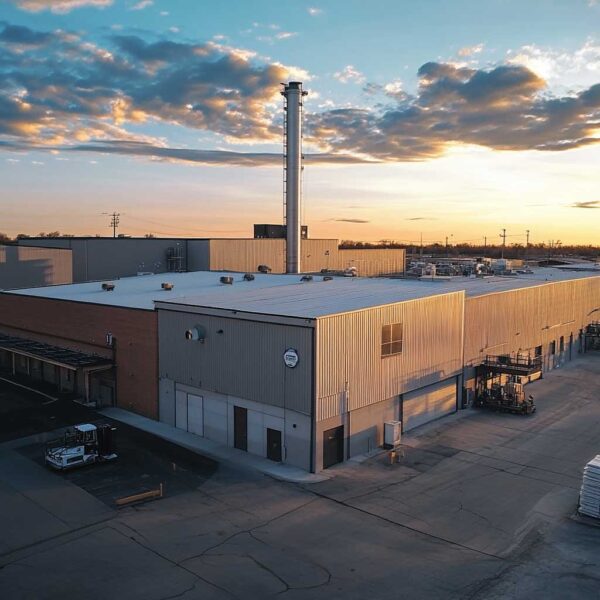Investing in a business broker tailored to niche industries like manufacturing, wholesale, construction, or technology ensures smooth transactions and maximum value. These industries present unique challenges—from complex valuations to highly regulated markets—making working with brokers specializing in these sectors essential. This guide explores identifying the best broker for your needs, ensuring you make informed decisions for a successful business sale or acquisition.
Key Responsibilities of a Business Broker
Business brokers ensure successful transactions in niche industries like construction, technology, and manufacturing. Their responsibilities go beyond merely connecting buyers and sellers; they actively manage the process to optimize outcomes.
A skilled broker handles valuation, buyer outreach, and negotiation with expertise tailored to the specific needs of niche industries.
They ensure smooth transitions by addressing critical aspects such as license transfers, operational continuity, and data compliance, giving buyers confidence in the process. Additionally, brokers strategically position businesses by highlighting unique strengths like operational efficiencies, innovative technologies, or long-term contracts to attract the right buyers.
For Construction Businesses
Construction businesses have unique challenges tied to projects, assets, and regulatory requirements. Brokers specializing in this industry manage several crucial aspects:
- License and Permit Transfers: Ensuring that all operational licenses and permits are transferred to the buyer is critical to maintaining compliance and preventing business interruptions. A skilled broker oversees these transitions to avoid unnecessary delays.
- Project Pipeline Evaluation: Active contracts, pending bids, and ongoing projects significantly impact a construction business’s valuation. Brokers assess these pipelines to provide a clear picture of future revenue potential while addressing associated risks.
- Negotiating Complex Contracts: Construction projects often involve long-term agreements with developers or government agencies. Brokers with expertise in the field handle negotiations to secure favorable terms, ensuring the business’s ongoing profitability and market positioning.
For Technology Businesses
The fast-paced and innovation-driven nature of the technology sector presents distinct challenges during transactions. Brokers specializing in this space bring critical expertise:
- Proprietary Asset Valuation: Intellectual property, such as software, algorithms, and patents, often constitutes the bulk of a tech business’s value. Brokers work alongside legal and technical experts to appraise these assets accurately and ensure they are appropriately reflected in the final sale price.
- Client and Data Transition Management: Transferring sensitive client data and ensuring compliance with data privacy regulations, such as GDPR or CCPA, is delicate. Brokers help navigate these transitions, maintaining trust and minimizing disruptions for both the buyer and the existing client base.
- Identifying Tech-Savvy Buyers: The value of a tech business is often best understood by buyers with a strong background in the field, such as venture capitalists or private equity firms. Brokers leverage their networks to connect sellers with qualified and interested buyers, increasing the likelihood of a successful sale.
For Manufacturing Businesses
Manufacturing businesses have their own intricacies, including heavy reliance on equipment, production processes, and supply chains. Brokers focusing on this sector handle the following:
- Asset Valuation and Depreciation: Machinery, fleet vehicles, and raw materials must be carefully assessed. Brokers ensure the valuation reflects their condition, functionality, and market demand.
- Operational Efficiencies: Presenting opportunities for optimizing production workflows can enhance the business’s appeal to buyers. Brokers identify and highlight these efficiencies during negotiations.
- Supply Chain Stability: Reliable supplier relationships are critical to manufacturing operations. Brokers evaluate these relationships and mitigate potential disruptions, providing buyers with confidence.
Evaluating a Broker’s Expertise in Your Specific Industry
Expertise isn’t just about knowing the basics—it’s about understanding market trends, asset valuations, and the intricacies of revenue models within niche industries. For sectors like construction, technology, and manufacturing, this specialized insight ensures that every aspect of the transaction is optimized.
In-Depth Market Knowledge
A business broker with strong market knowledge ensures that your business is accurately valued and strategically positioned to attract the right buyers. Each niche industry has unique market dynamics that require specialized insight.
- Construction Brokers: The construction industry is deeply influenced by factors such as infrastructure development, housing demand, and government policies. For instance, a broker with expertise in this sector will monitor public infrastructure initiatives, local housing projects, and incentives like tax breaks or grants for green building practices.This knowledge enables them to market construction businesses for sale in a way that highlights their alignment with current and future demand. They can also assess regional trends, ensuring your business is positioned as a leader in its market.
- Technology Brokers: In the fast-evolving tech industry, staying updated on advancements like SaaS, artificial intelligence (AI), and cloud computing is critical. Brokers specializing in tech companies for sale understand how to evaluate and promote innovative aspects of a business, such as cutting-edge software solutions or proprietary algorithms.They also identify emerging trends, such as cybersecurity innovations or IoT applications, to showcase your business’s potential for long-term growth. This expertise allows brokers to connect sellers with buyers who recognize the value of future-focused solutions.
- Manufacturing Brokers: The manufacturing sector is shaped by trends like automation, sustainable practices, and supply chain globalization. Brokers with industry-specific knowledge can identify and emphasize your business’s operational efficiencies, such as advanced production systems or environmentally friendly manufacturing processes. For a manufacturing business for sale, they can also assess market demand for scalable operations, helping attract buyers who see value in expanding product lines or streamlining supply chains.
By leveraging their understanding of market trends and opportunities, brokers ensure your business appeals to qualified buyers while maintaining competitive positioning.
Comprehensive Asset Valuation
Accurate asset valuation is the foundation of a successful transaction. A skilled broker ensures that every component of your business is thoroughly assessed, reflecting its actual value and maximizing profitability.
- Construction Businesses: Brokers evaluate tangible and intangible assets, such as land, heavy machinery, and long-term contracts. For example, the value of specialized equipment used in large-scale projects, like cranes or excavation machinery, is meticulously calculated. Additionally, active contracts and project pipelines are assessed to estimate future revenue potential. Brokers also consider location-specific advantages, such as proximity to significant urban developments or accessibility to high-demand markets.
- Technology Businesses: The valuation of a tech business often hinges on intangible assets like intellectual property, patent portfolios, and recurring revenue models. A broker skilled in this area will examine the scalability of SaaS platforms, the market potential of proprietary algorithms, and the longevity of subscription-based revenue streams. They also account for factors such as brand reputation, client retention rates, and the adaptability of the business in rapidly evolving tech landscapes.
- Manufacturing Businesses: Brokers analyze operational assets and strategic opportunities for manufacturing businesses. Machinery conditions, production capabilities, and the value of raw materials are carefully assessed to determine their market worth.
They also examine operational scalability, identifying opportunities for automation or expansion into new markets. Supply chain stability is another critical factor, as dependable supplier relationships significantly impact a business’s perceived value.
By integrating a deep understanding of asset valuation into the transaction process, brokers ensure that buyers recognize the full potential of your business. This comprehensive approach attracts serious buyers and drives optimal profitability for sellers.
Ensuring Confidentiality and Transparency During the Sale Process
Confidentiality and transparency are critical for building trust between buyers and sellers. Brokers must balance protecting sensitive data with fostering open communication.
Protecting Confidential Information
Sensitive data like financial records, contracts, and intellectual property must be safeguarded during the sale process.
- Construction Businesses: Confidentiality extends to project bids, subcontractor agreements, and equipment financing details. Brokers ensure that only pre-screened buyers with signed NDAs can access this information, preserving the business’s competitive edge.
- Technology Businesses: Due to the prevalence of proprietary software, client data, and algorithms, brokers employ advanced security protocols to protect digital assets during negotiations.
- Manufacturing Businesses: Trade secrets, specialized production methods, and supplier agreements require careful handling to maintain operational stability while providing buyers with necessary insights.
Transparency in Communication
Transparency aligns buyer and seller expectations, fostering smoother transactions. Brokers set clear timelines, proactively address concerns, and balance confidentiality with providing in-depth information.
Making the Right Choice: Partnering with an Expert Business Broker
Selecting the right business broker for niche industries is a pivotal step in ensuring the success of your transaction. Whether you’re exploring a construction business for sale, considering tech companies for sale, or evaluating a manufacturing business for sale, working with a broker with industry-specific expertise can make all the difference. From accurate valuations to strategic buyer outreach and skillful negotiation, a knowledgeable broker streamlines the process, protects your interests, and maximizes value.
Take the Next Step with Confidence
Lake Country Advisors is your trusted partner for navigating complex transactions across niche industries. With deep expertise as a construction, manufacturing, and technology broker, our team provides tailored strategies to ensure seamless, profitable outcomes. Contact Lake Country Advisors today for a free consultation, and let our experienced professionals help you achieve your business goals with confidence.







